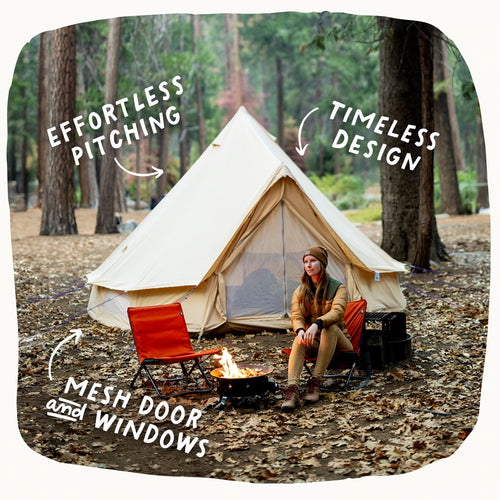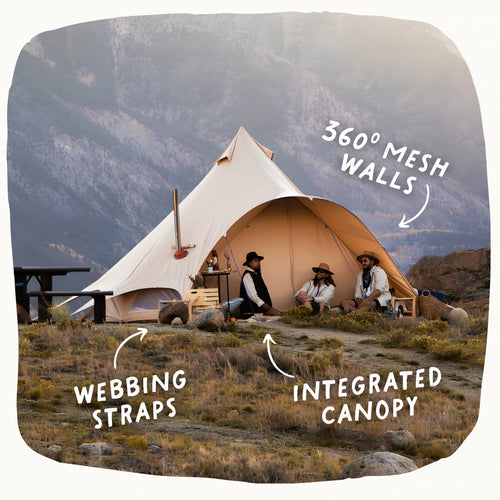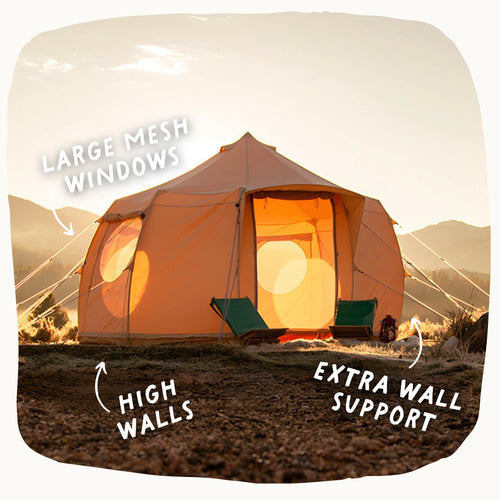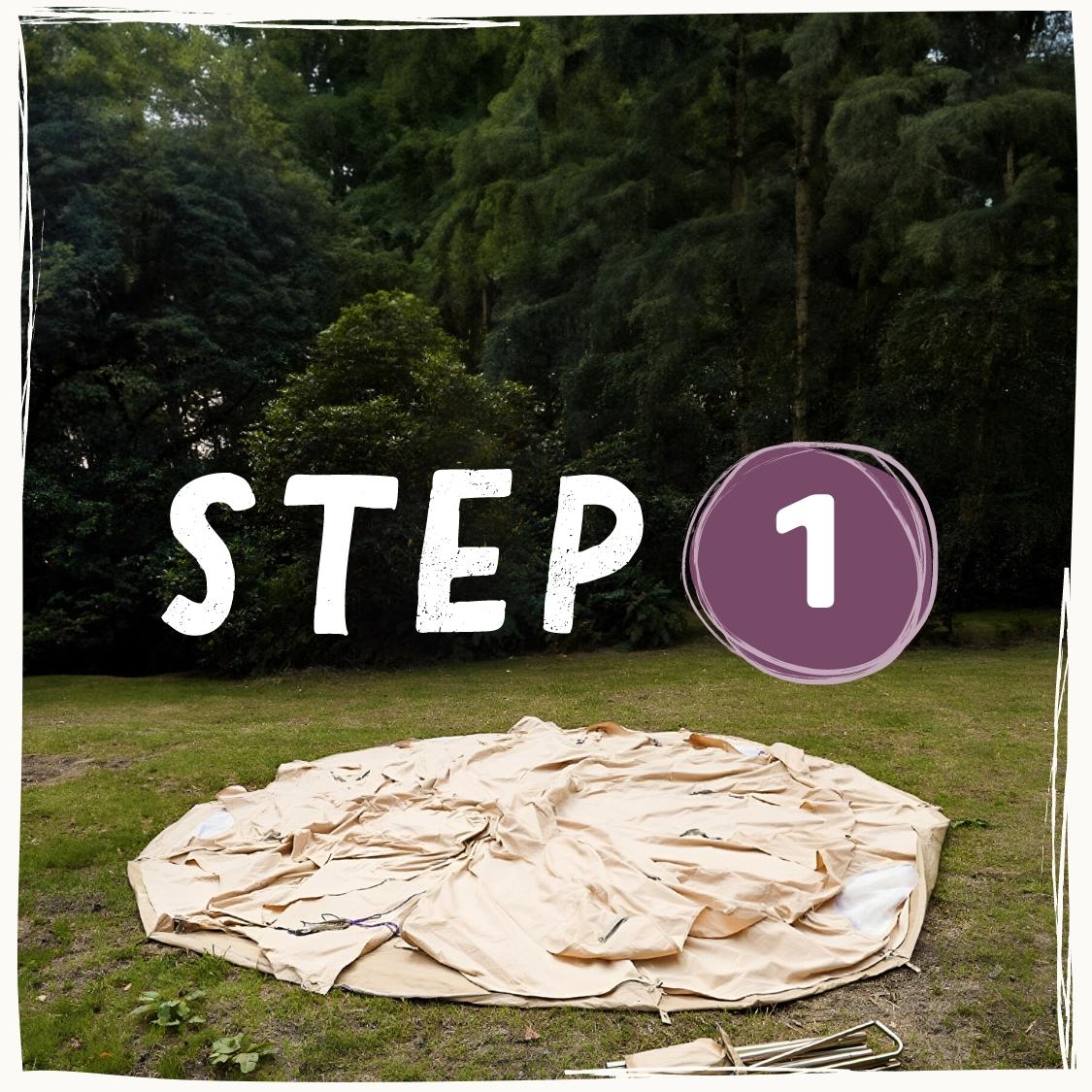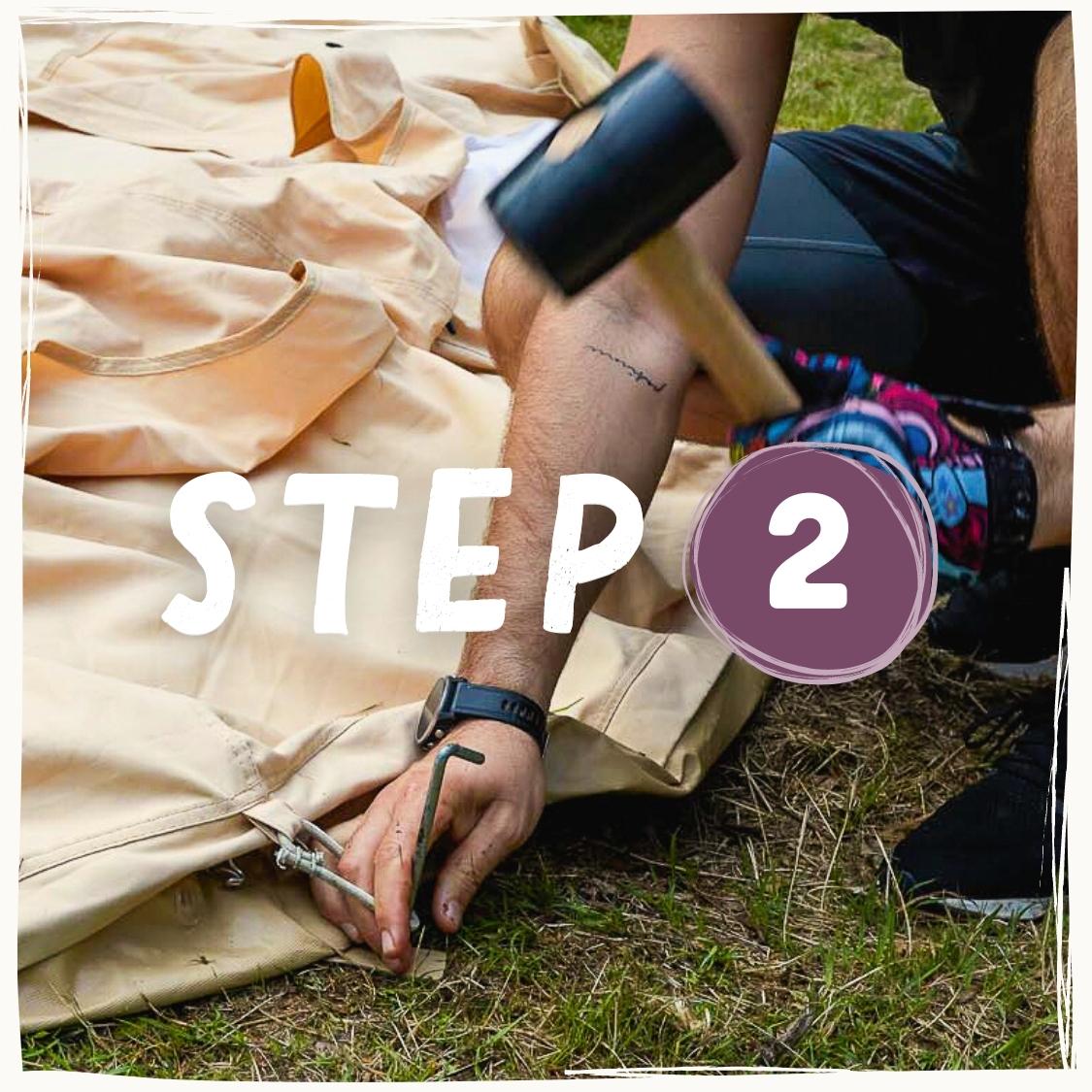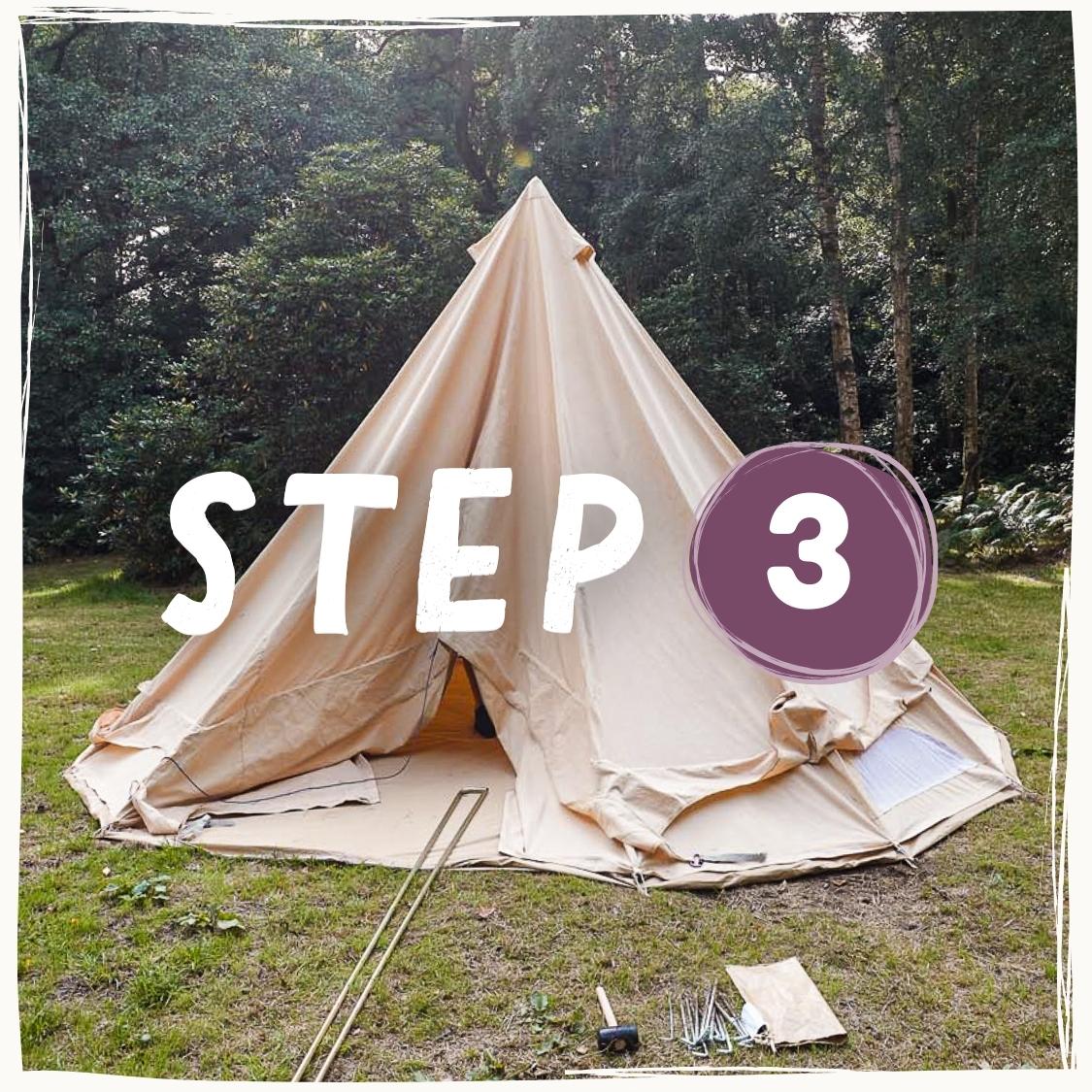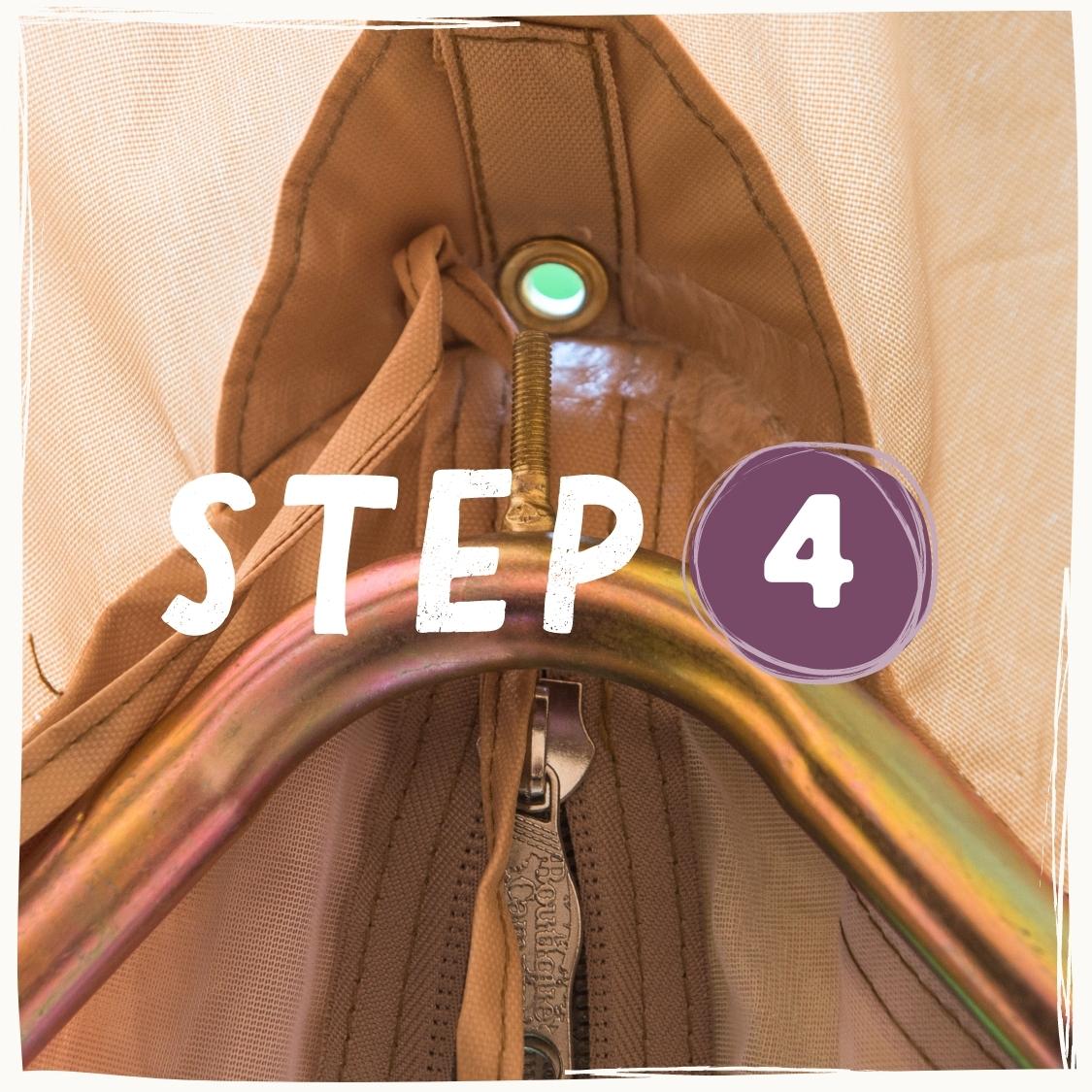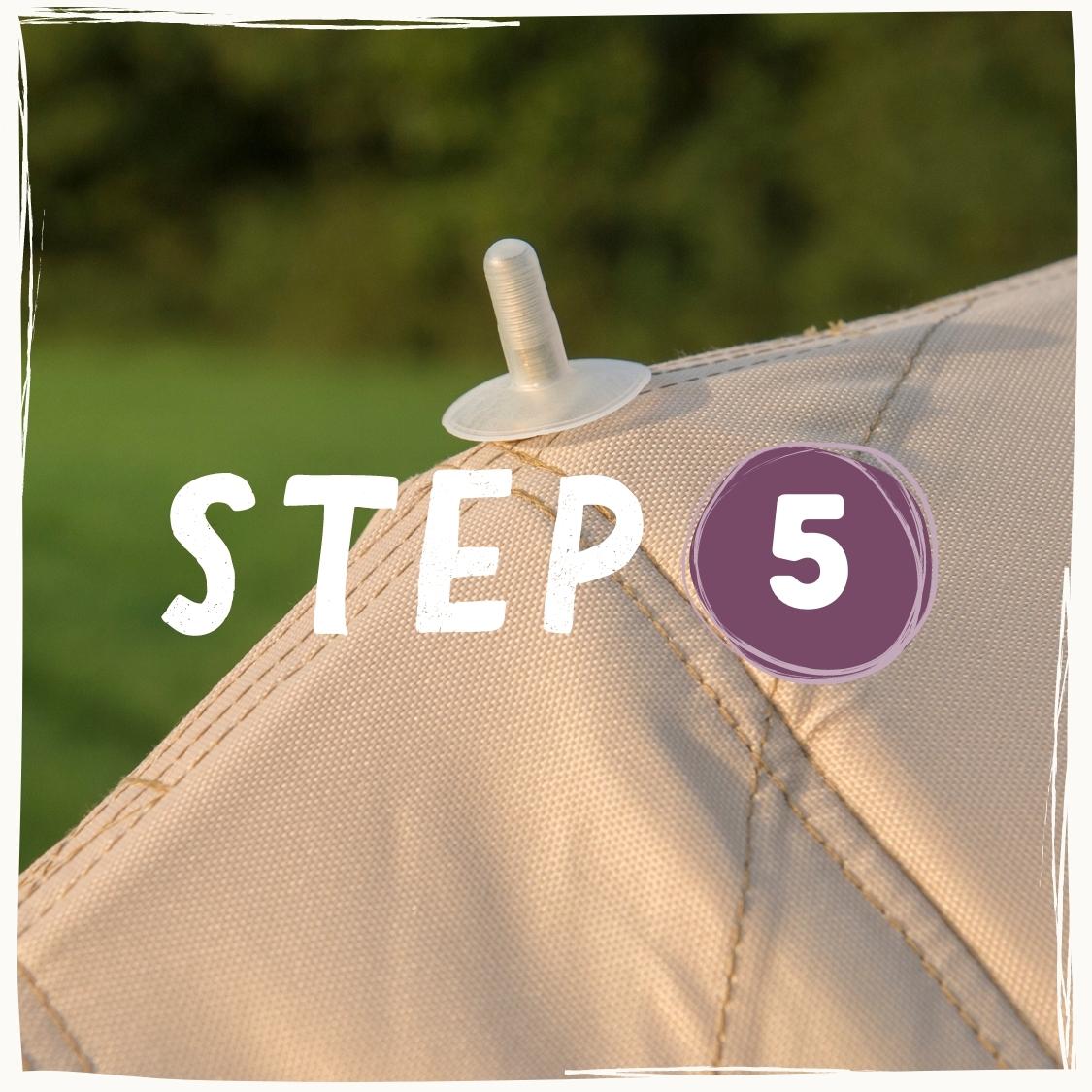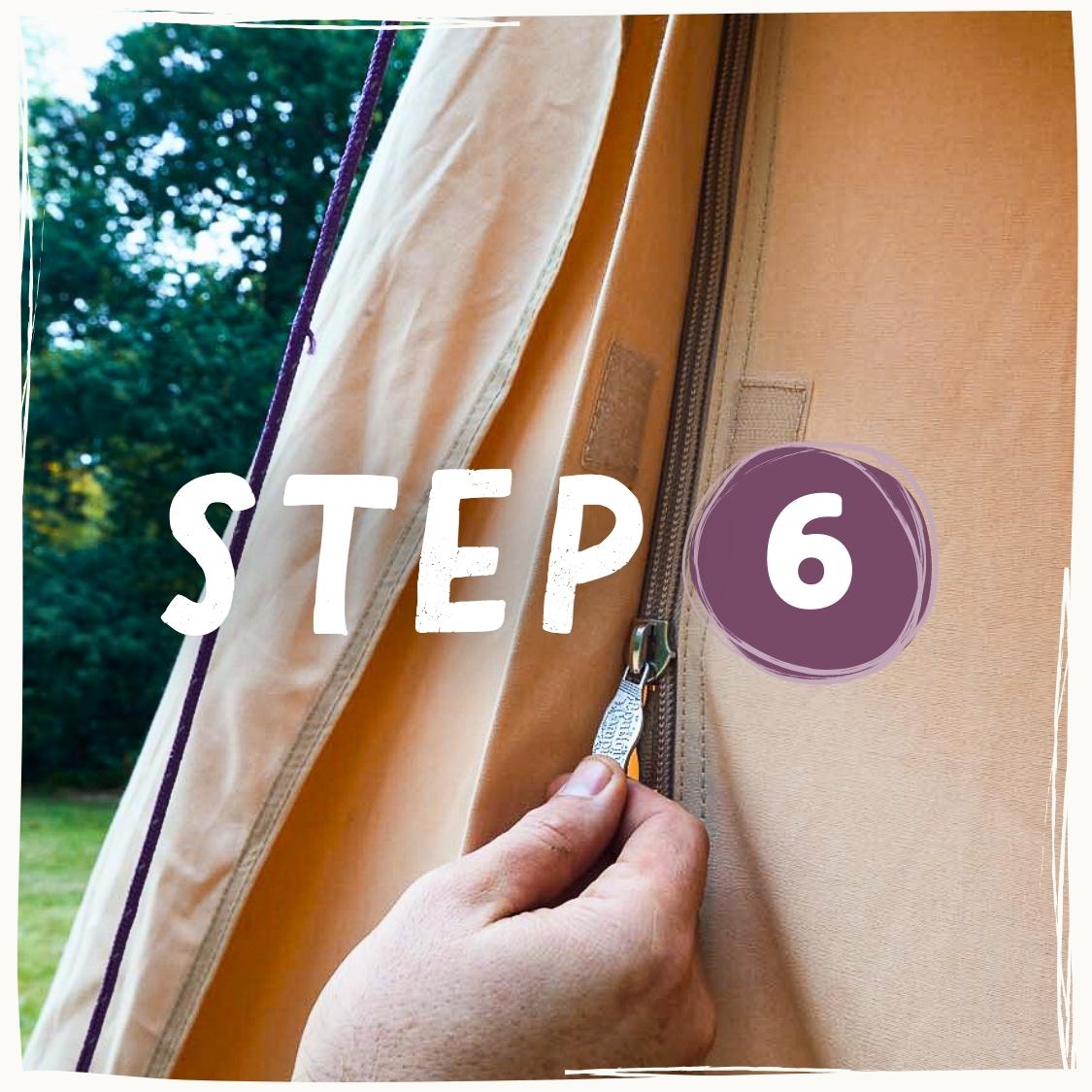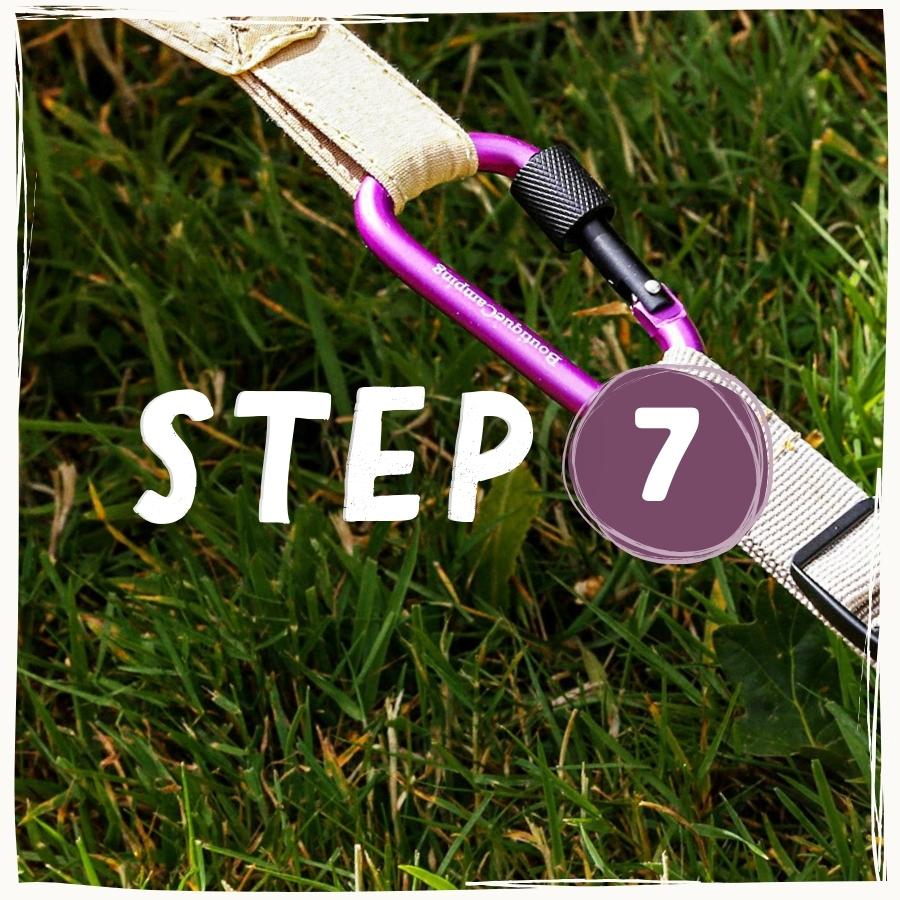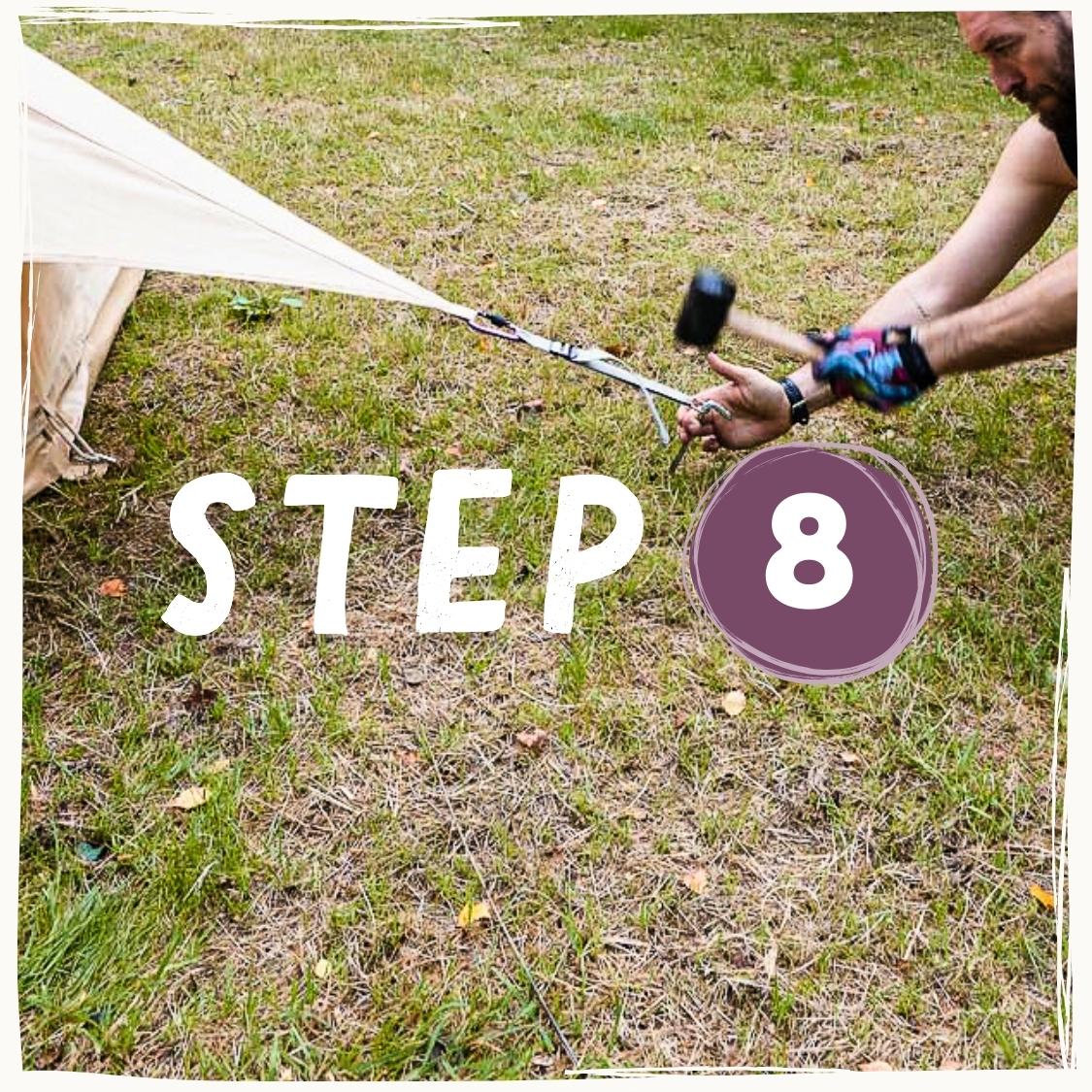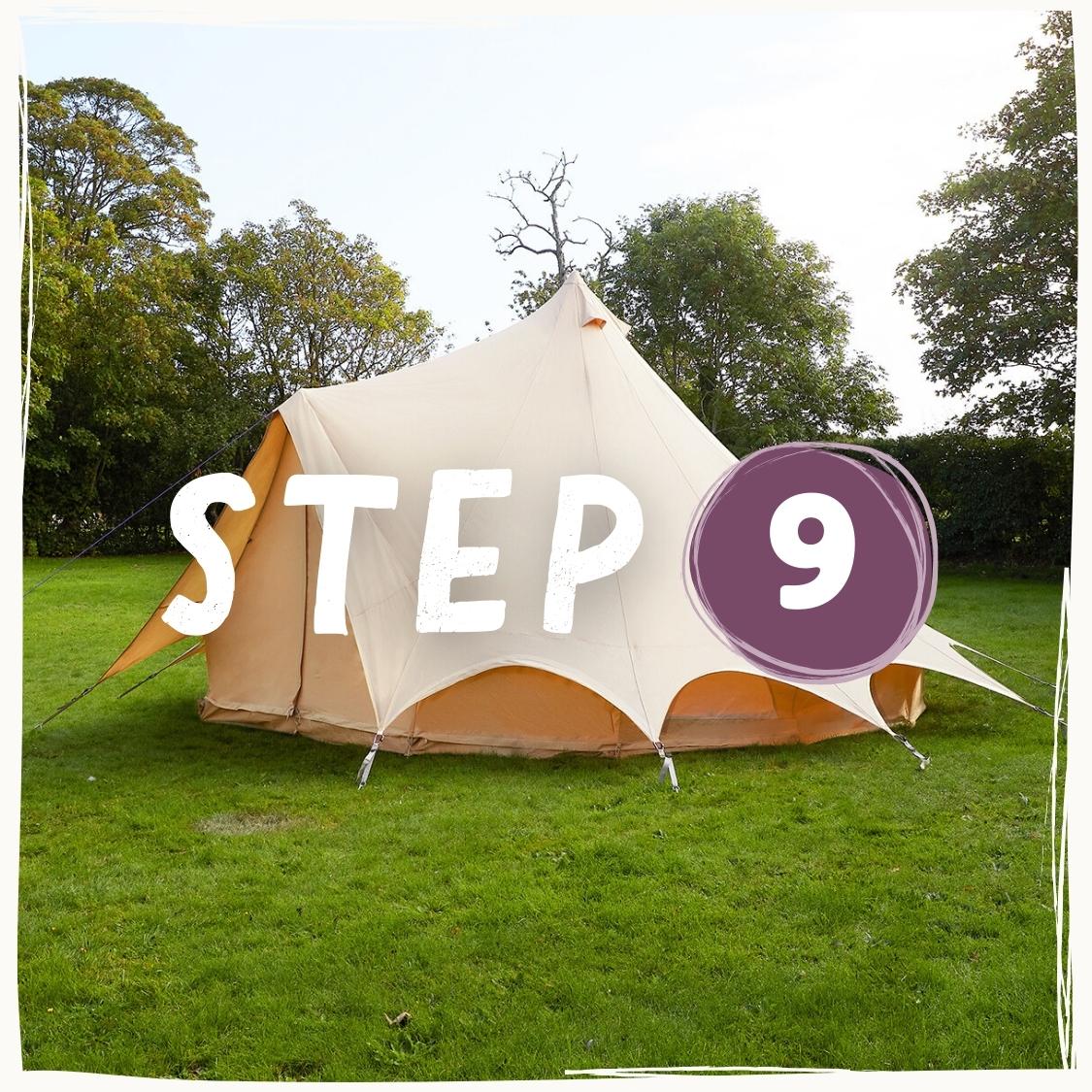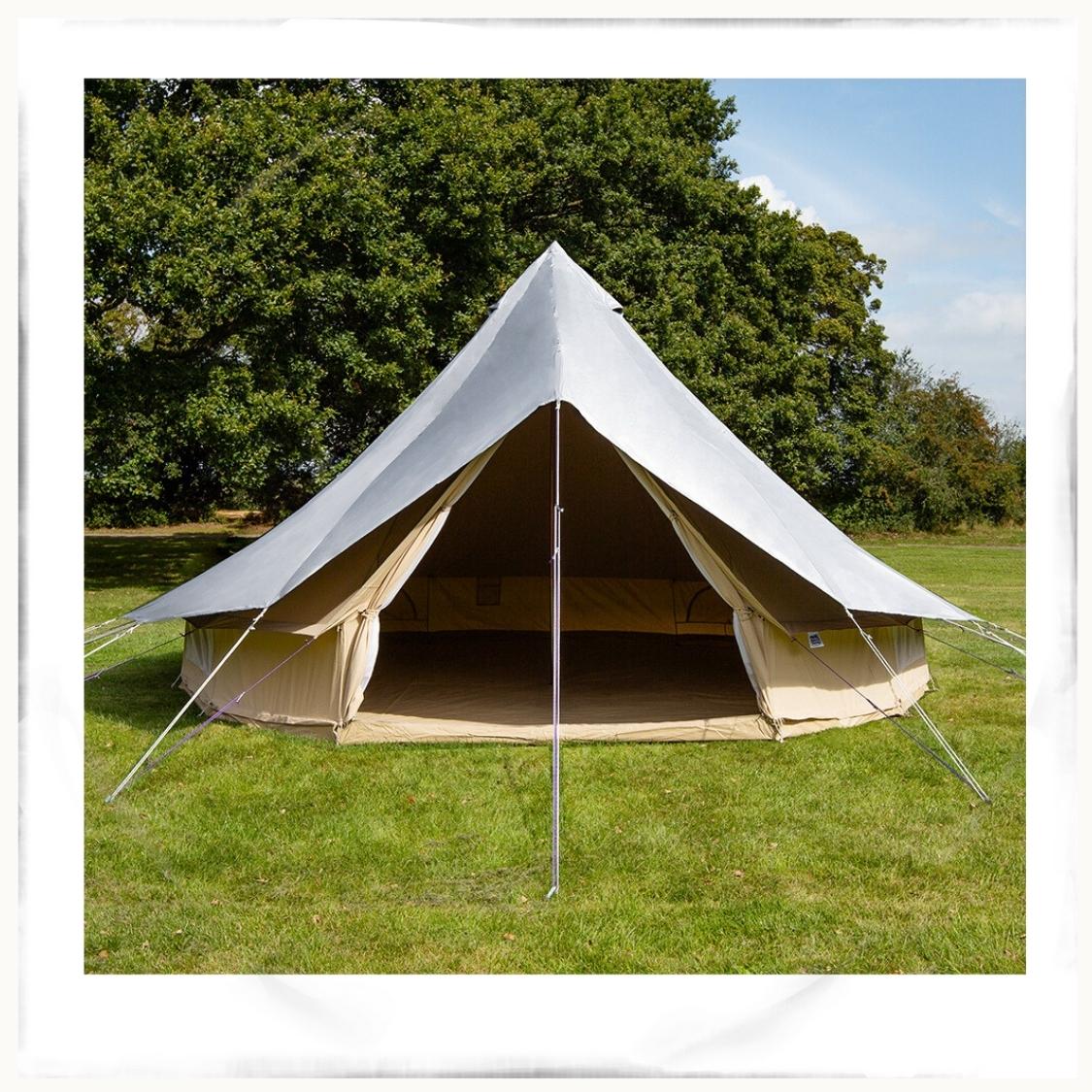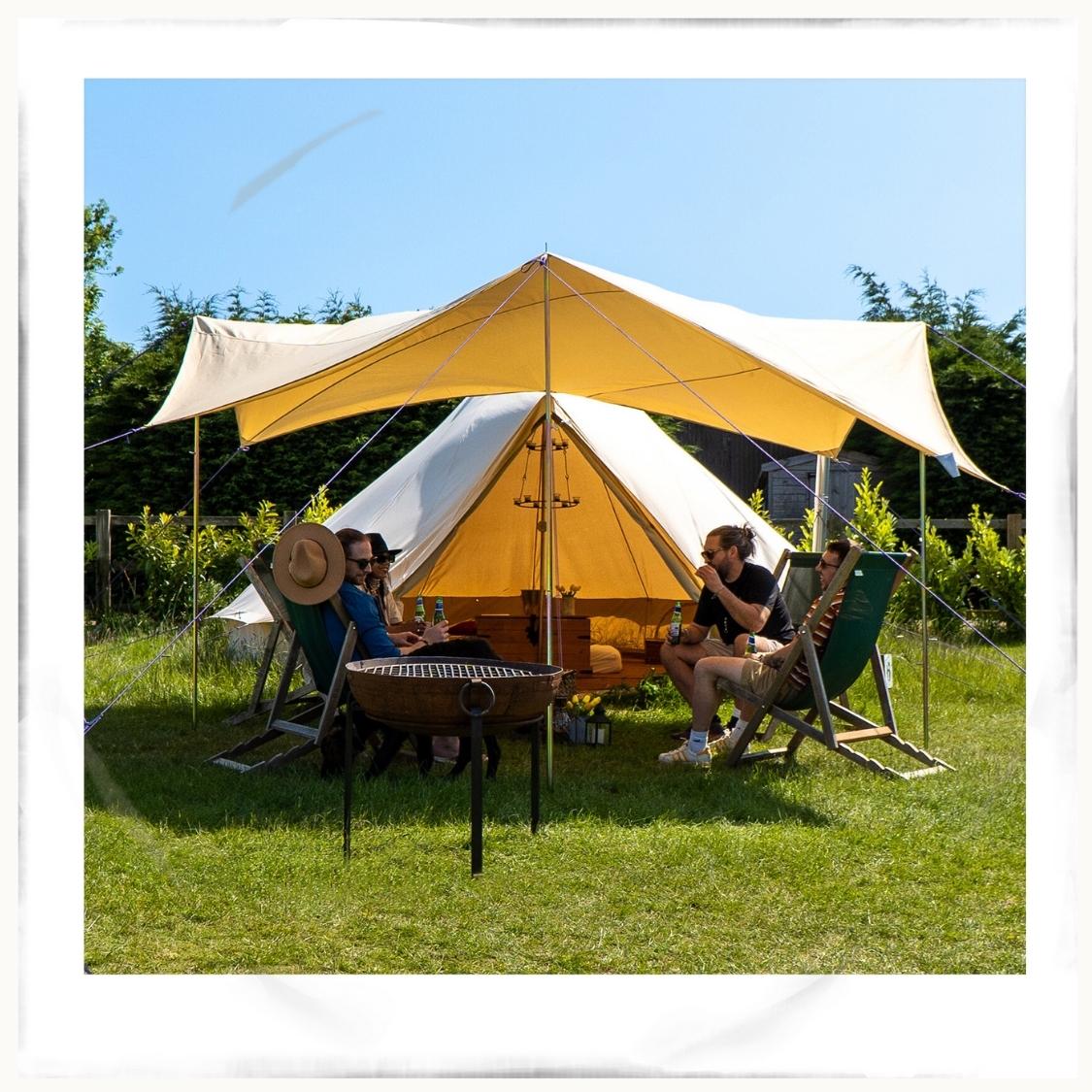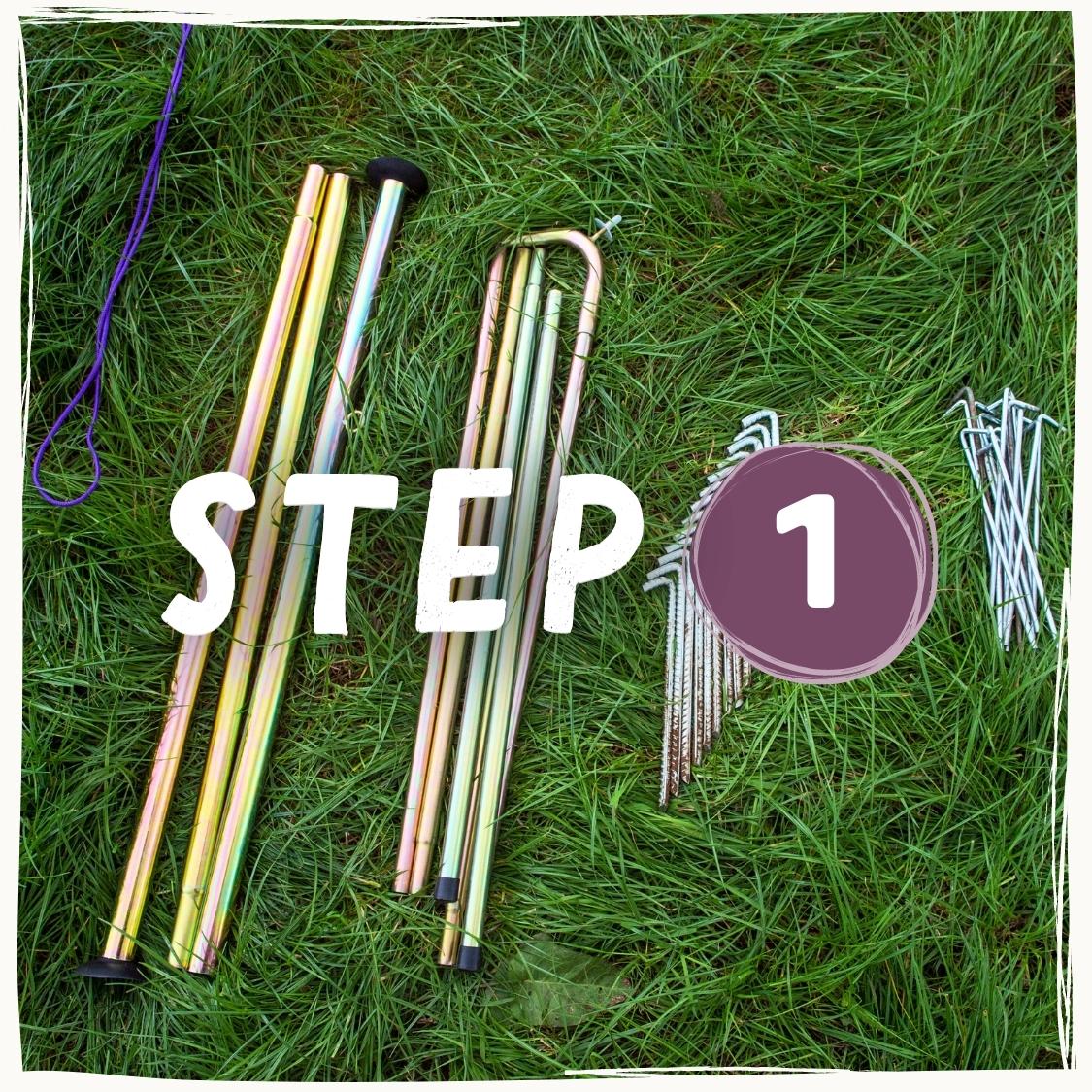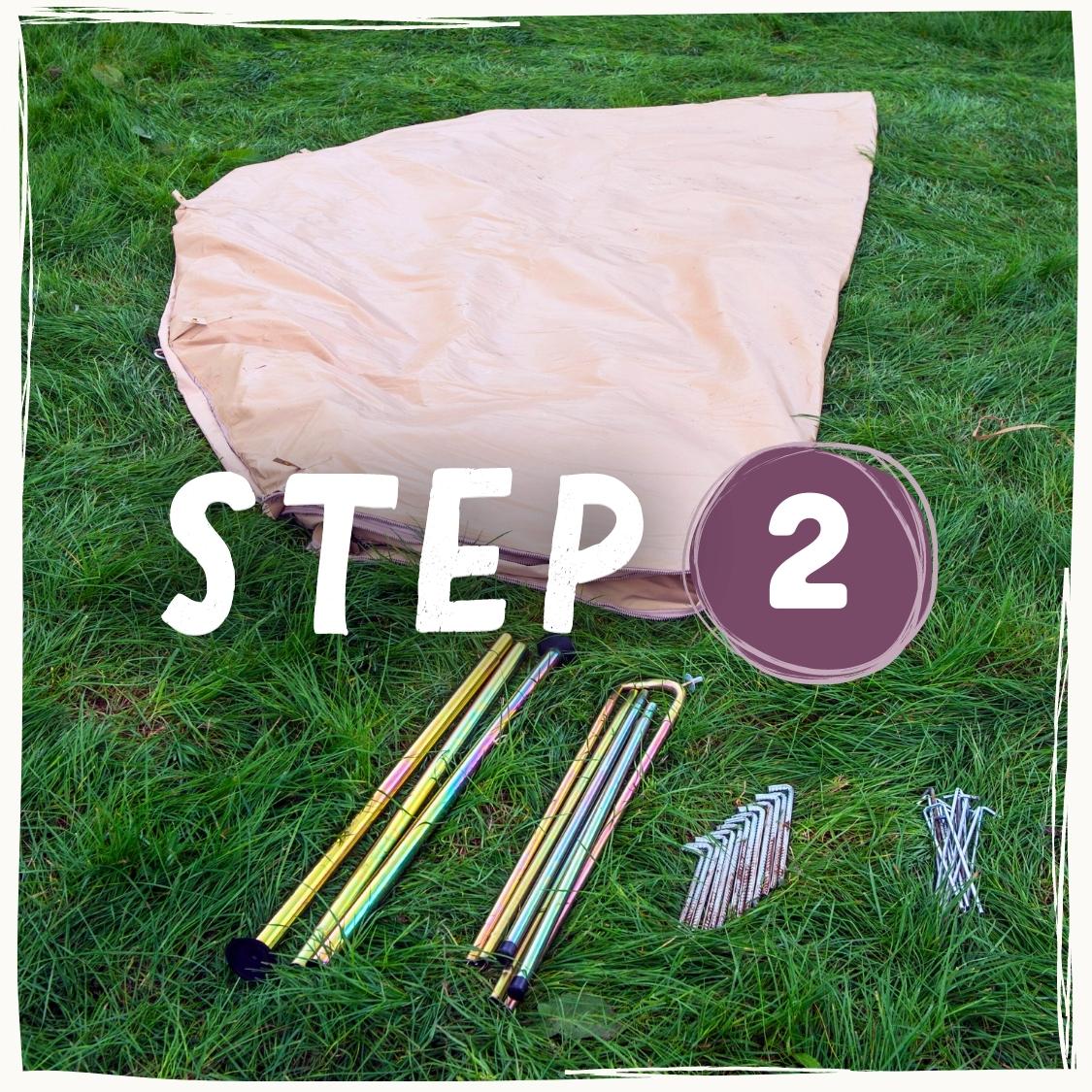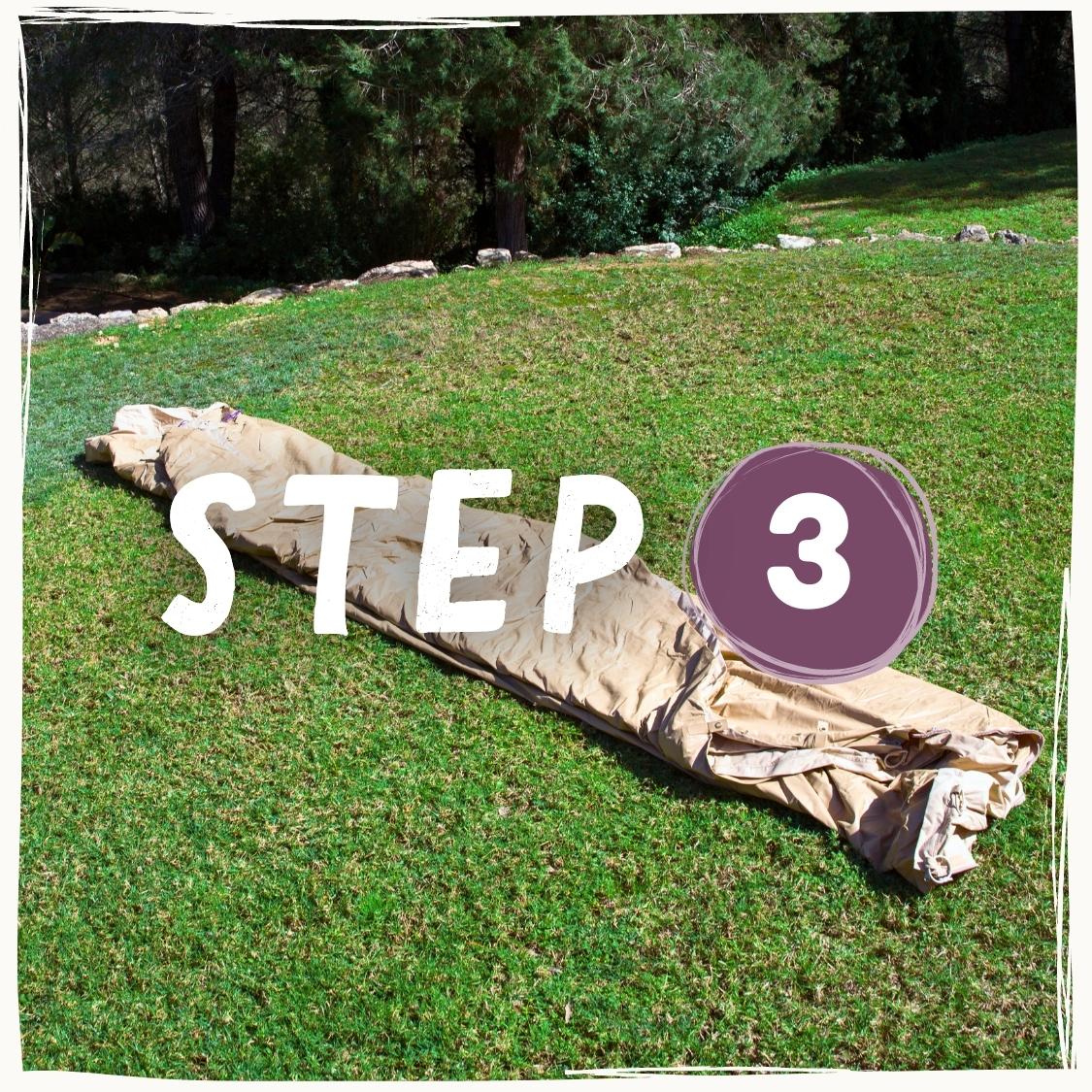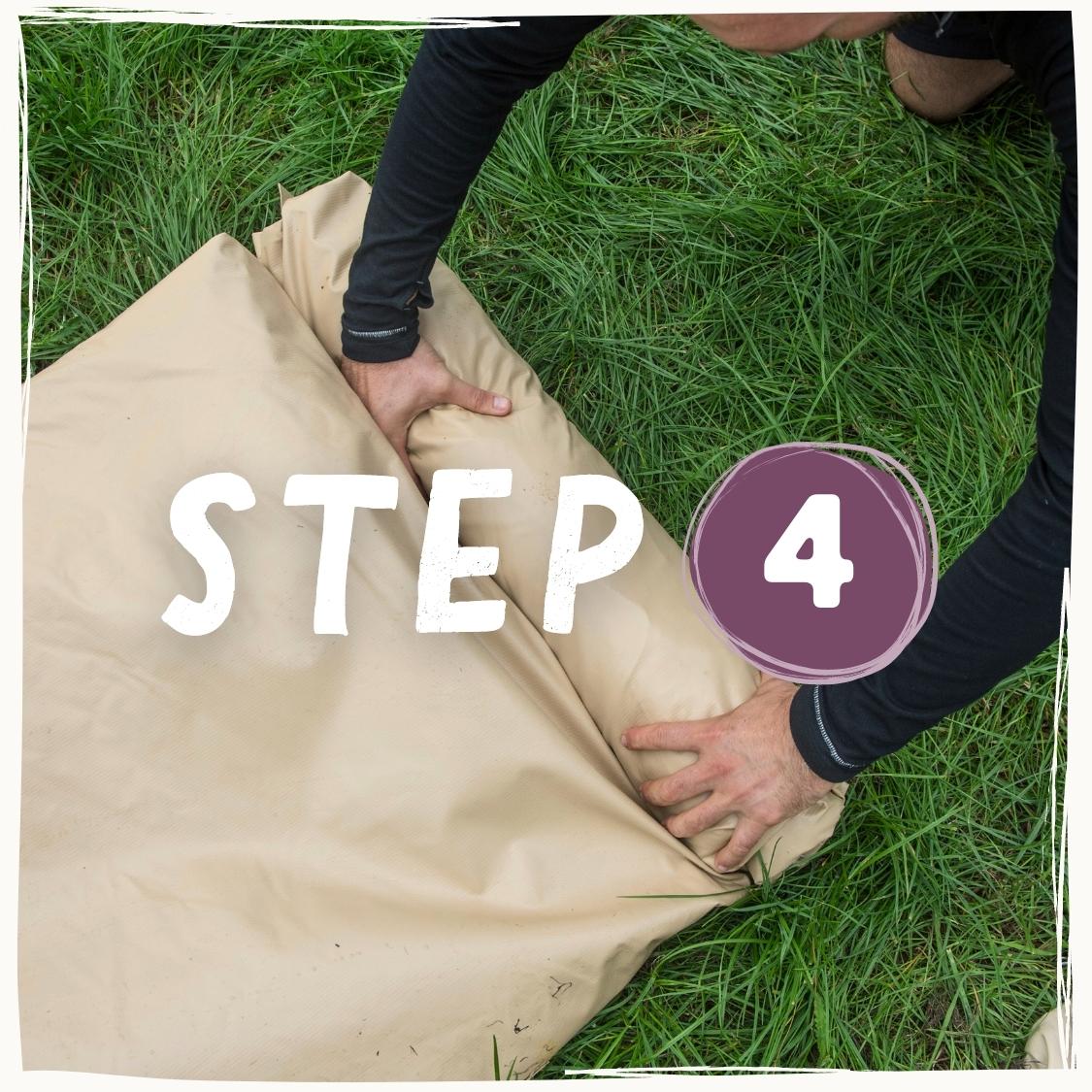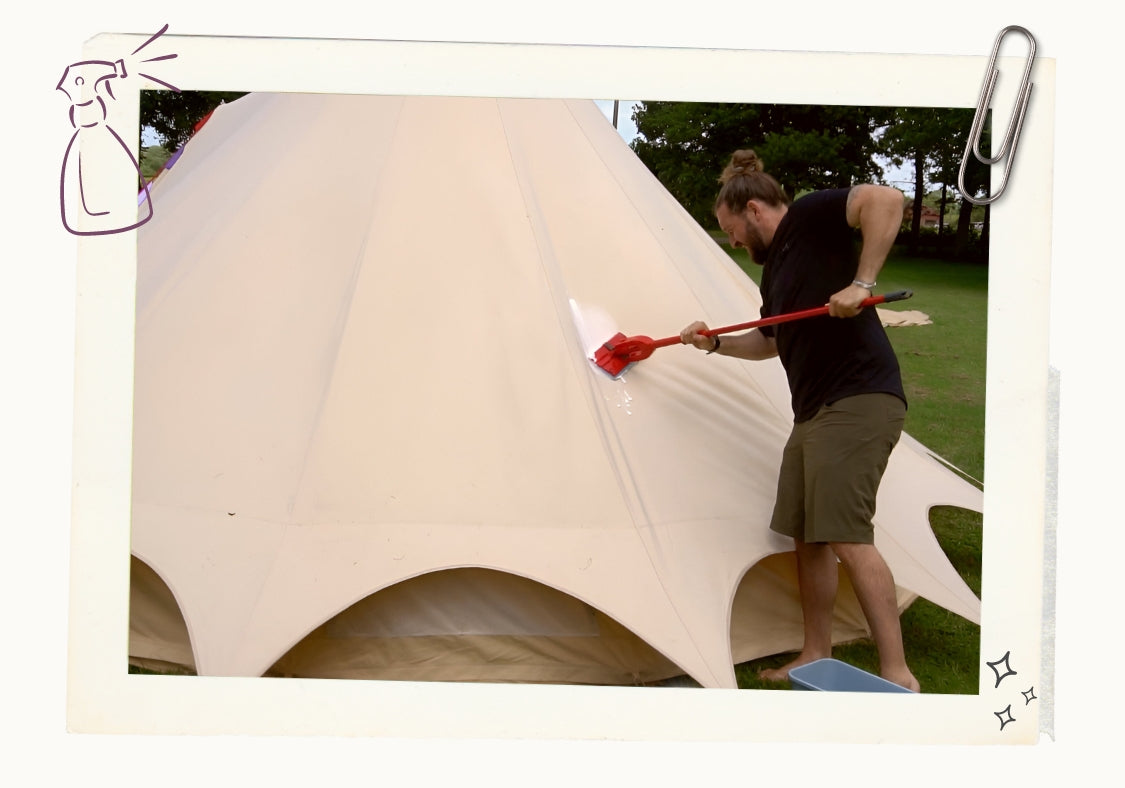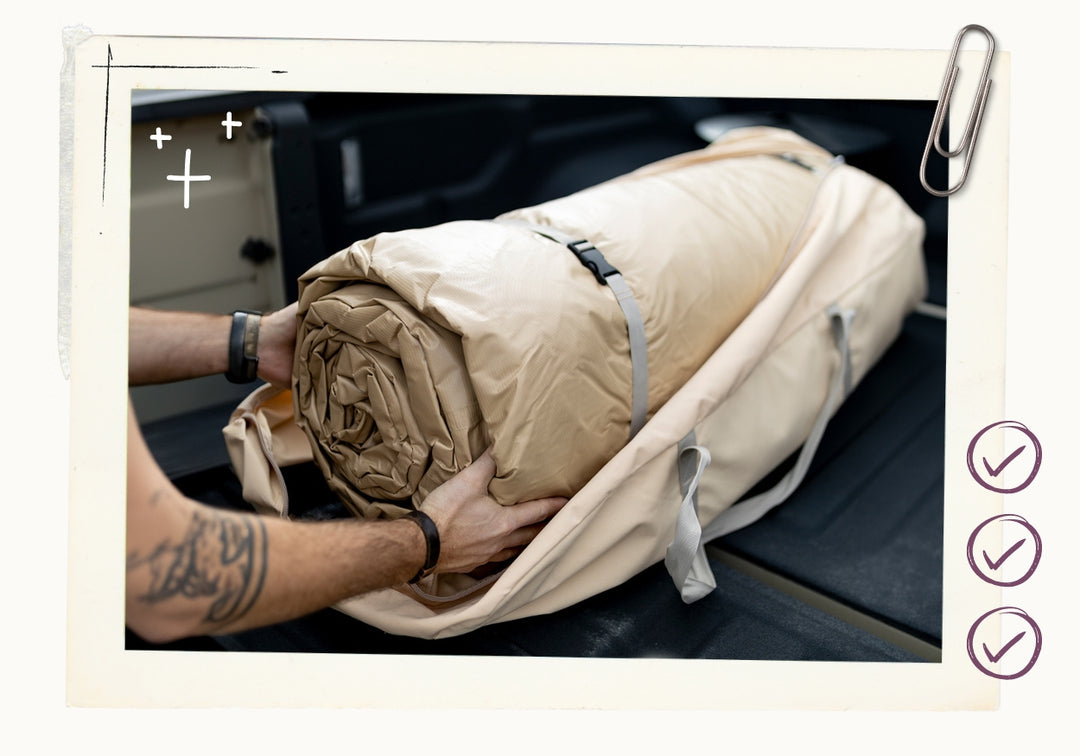
component checklist:
- Tent with attached webbing straps and groundsheet
- Tent bag
- Rubber mallet
- Full set of steel pegs
- x1 Centre Pole
- A-Frame Pole (x1-2 depending on no. of doors)
- Screw on rain cap
- Instruction manual
- Spares bag
get to know your bell tent plus
At Boutique Camping, our tents come equipped with a range of features meticulously crafted to enhance your outdoor living moments. The better acquainted you become with these attributes, the more enjoyable and comfortable your camping adventure will be.
plot preparation and pitch perfection
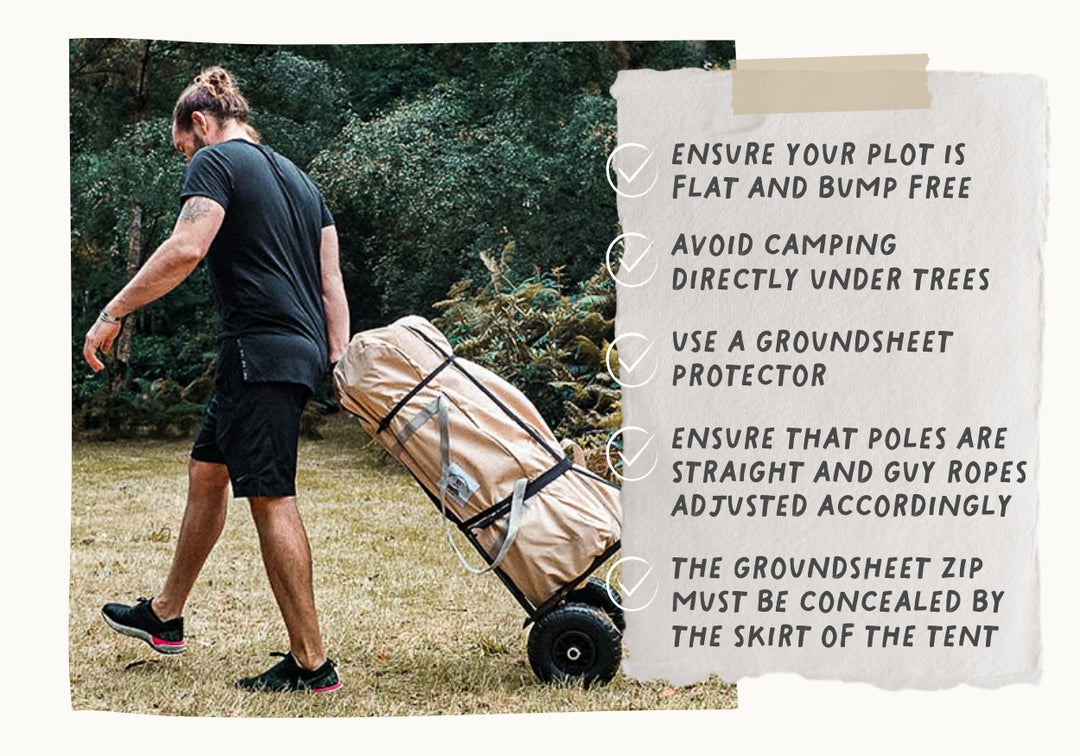
achieving pitch perfection
- Ensure your plot is flat and bump free, uneven surfaces or hill tops may apply too much uneven tension and result in damage.
- Avoid pitching your tent under trees unless you have a tent protector cover or shelter.
- Pitching your tent on a groundsheet protector will not only guide you when erecting your tent, but will also protect the groundsheet from dirt, water and condensation.
- Before securing down the pegs, zip all doors closed.
- Kinks and creases in the fabric suggest that the tension in the tent is uneven and can result in damage. When pitching your tent, ensure that the poles are straight and guy ropes are adjusted accordingly.
- The groundsheet zip must be concealed and hidden by the skirt of the tent.
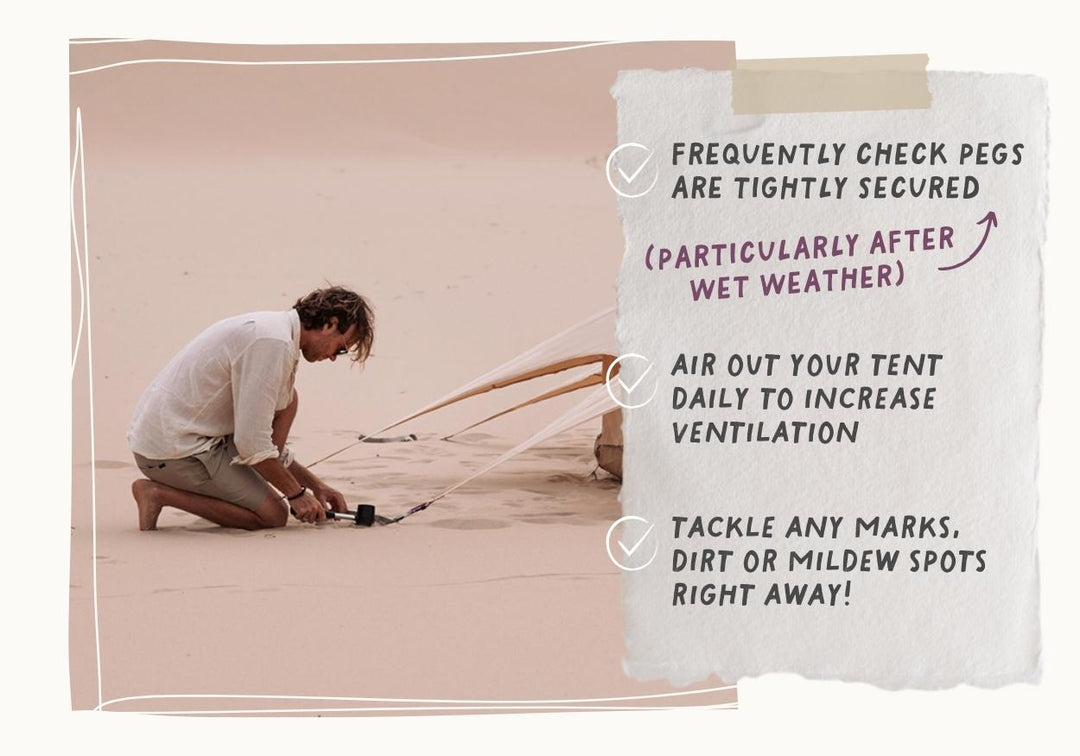
Image with once it's up:
- Frequently check that the pegs are secured tightly and have not become loose, this is particularly important after wet weather as the grounds will become soft.
- Air out your tent daily to increase ventilation. This can be done by opening the doors, windows (and if applicable) unzipping the groundsheet and rolling up the sides.
- If you spot any marks, dirt or mildew spots, tackle them right away to prevent the issue from staining or spreading.
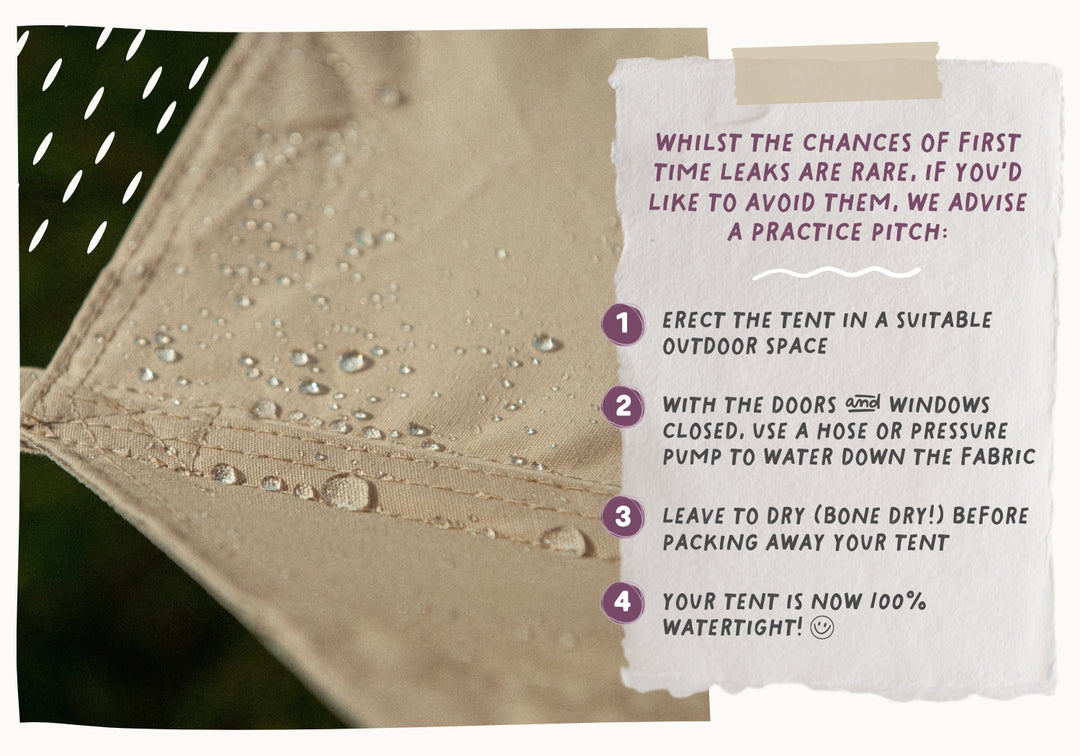
waterproofing and leak prevention:
- On the first occasion that your tent experiences a heavy rainfall, although unlikely, you may find small leaks around the seams of the fabric. Do not worry, as this normal!
- Once it has fully dried out, the cotton will naturally shrink and close any holes to ensure your tent becomes completely watertight.
- To completely avoid this when on your camping adventure, you can erect the tent in your garden (if possible) and hose it down with water.
how to pitch a bell tent plus
Follow the video or read the steps below to get your Bell Tent Plus pitch-perfect!
POPULAR BELL TENT PLUS ADD-ONS

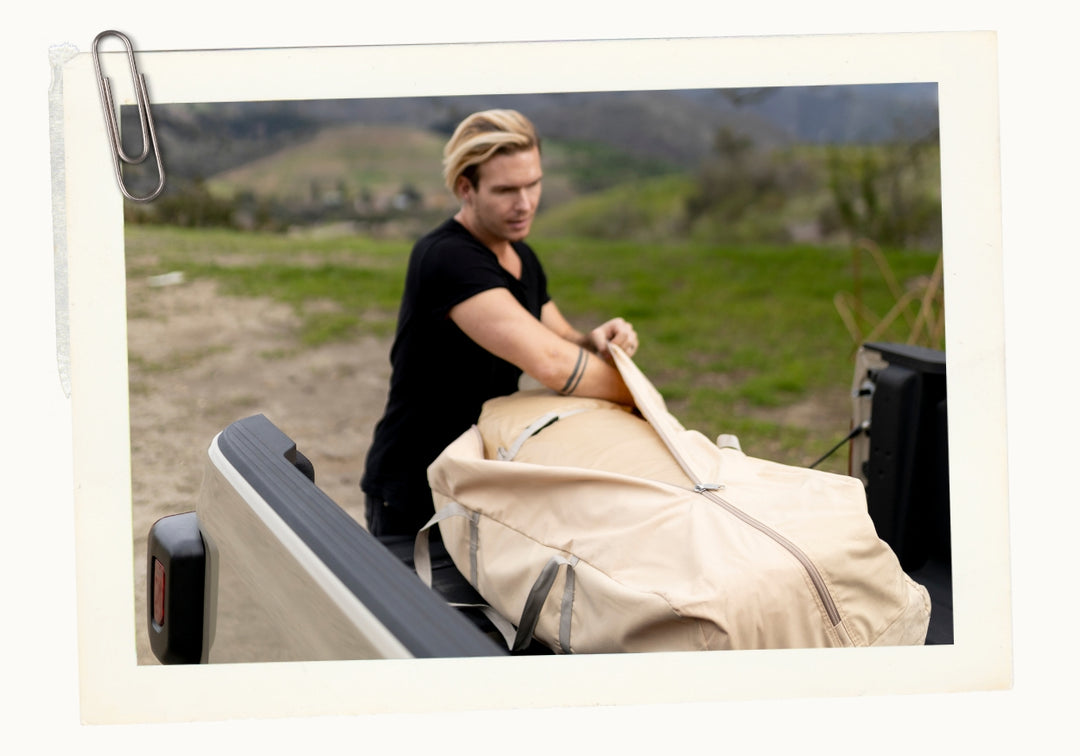
packing and storing your bell tent plus
It is VITAL that your tent is only stored once it is bone dry. If you store your tent whilst it's damp or wet, it may be affected by mildew. This can result in deterioration of the tent fabric. It's perfectly fine to take down your tent whilst it's still wet. However, you MUST ensure to hang it up to dry within 48 hours.
This can be achieved by hanging the tent on a washing line (or equivalent) and leaving it to air dry. Separating the groundsheet from the tent will speed up this process.
Store your tent away in a dry place, free of damp and excessive condensation. We would advise placing it in a high place, away from rodents!
Cleaning & reproofing your bell tent plus
To remove any dirt, light marks or mud off your tent you will need to
pitch it before cleaning. To tackle marks we advise a soft mop, a soft brush and sponge to apply either:
To remove any dirt, light marks or mud off your tent you will need to
pitch it before cleaning. If you're looking to wash the whole tent we advise mixing the cleaning agents above with water in a pump action pressure garden sprayer.
...before rinsing off with water.
'nikwax tent and gear solarwash' or 'nikwax cotton proof'.
Your tent will have a generous coating of our water, rot and UV repelling agent.
Over time, as a result of heavy use or testing environments, your tent fabric may require a second coating to revive breathability and resistance to the elements.
This can be done by using a garden spray to apply the following agents:
'nikwax tent and gear solarwash' or 'nikwax cotton proof'.
